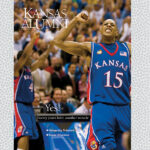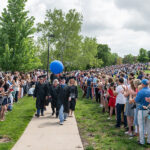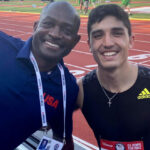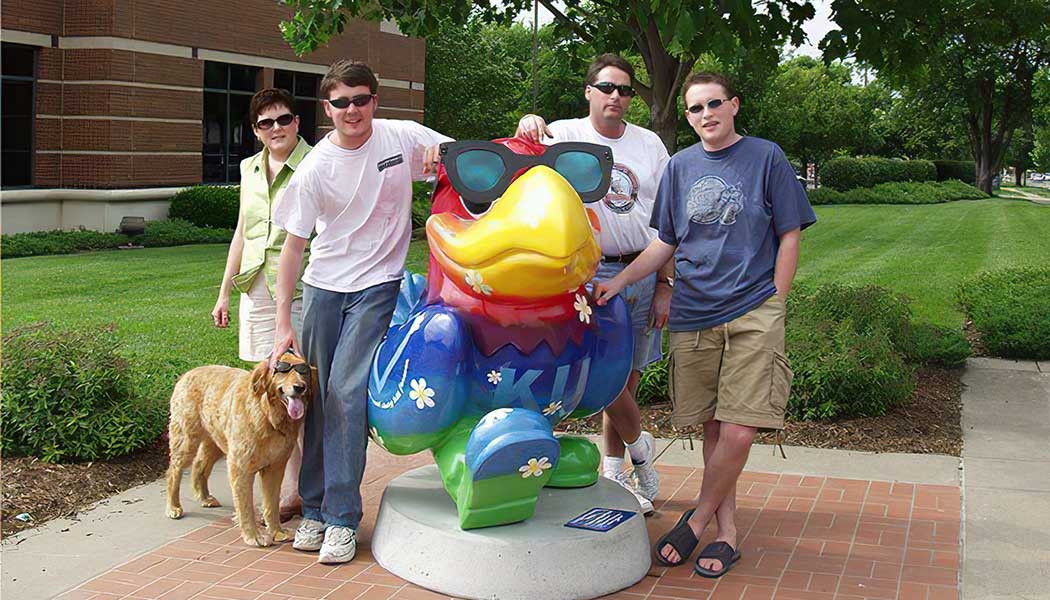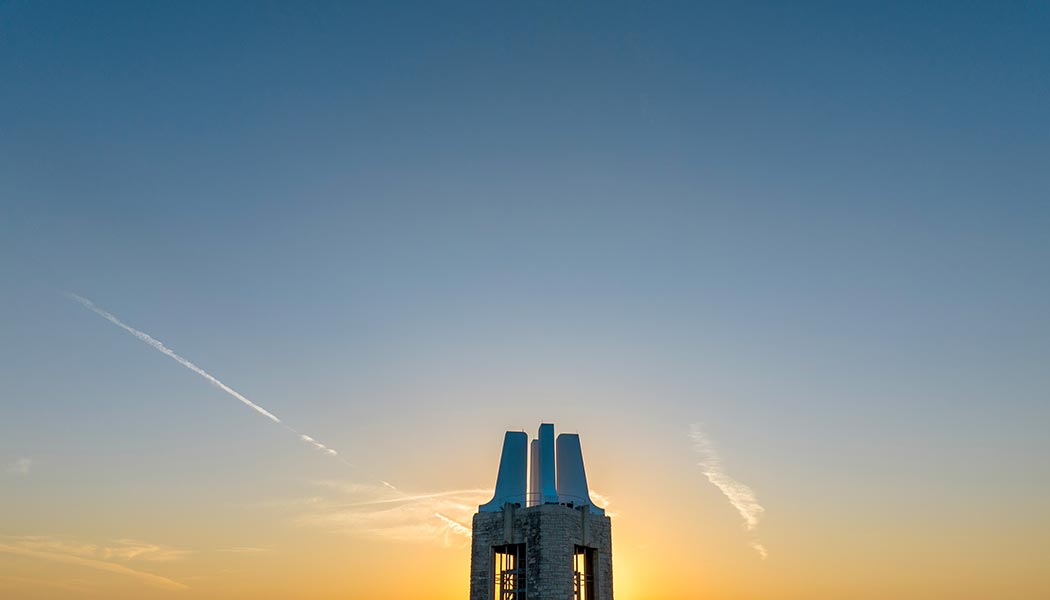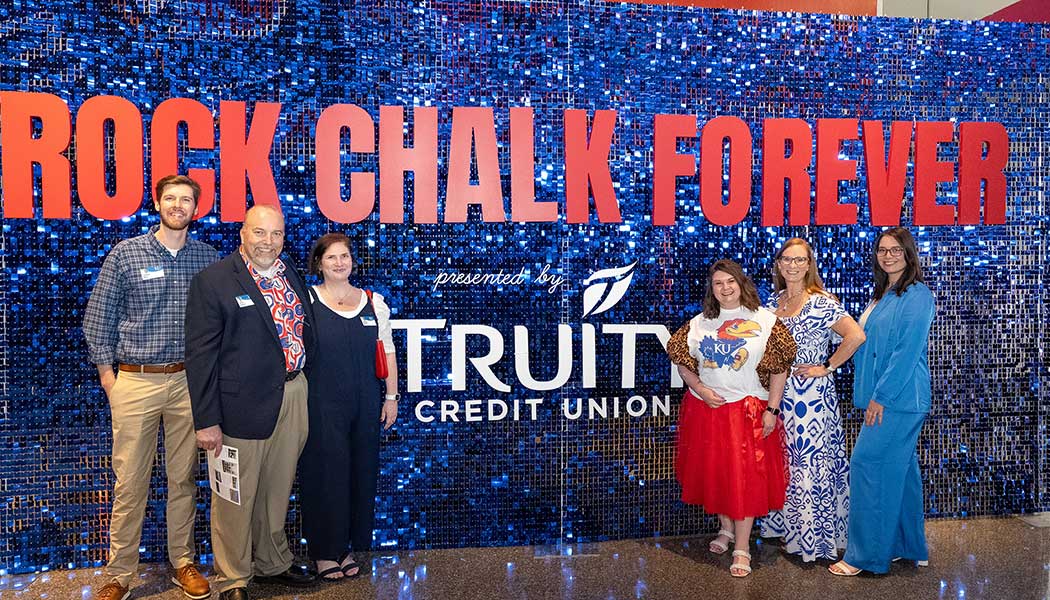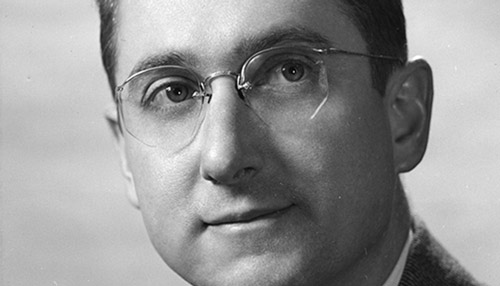Hometown love letter
‘Dear Larry’ documents pandemic’s slowed pace of Lawrence life
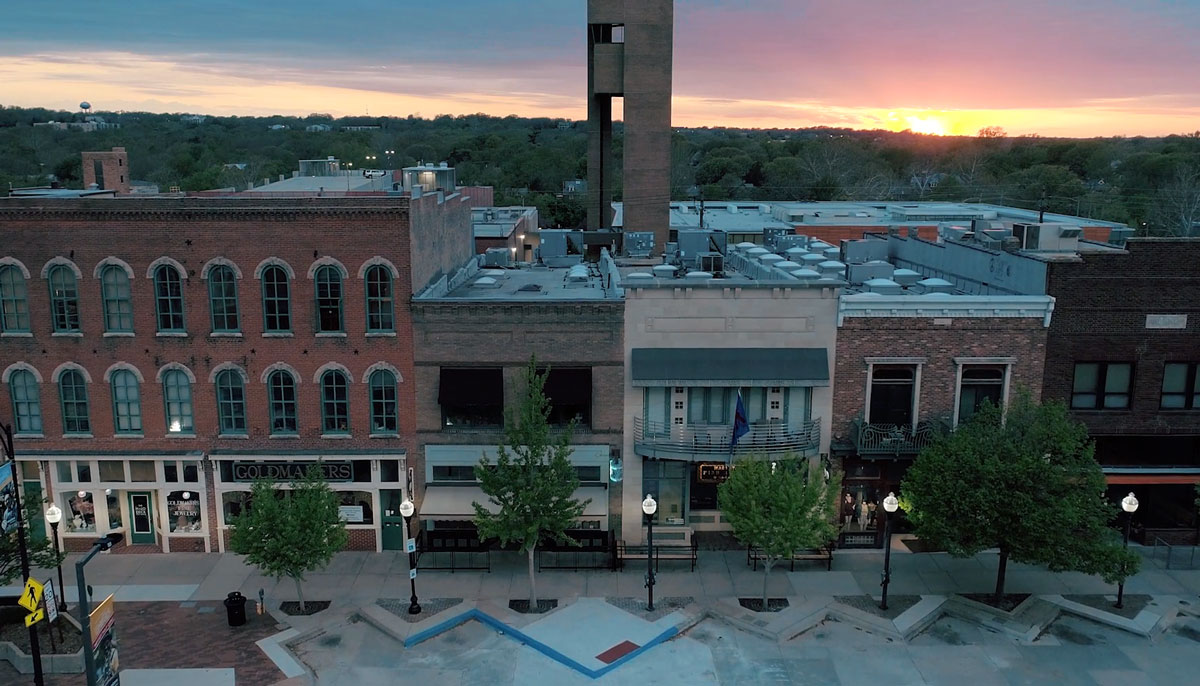
Before we can remember, first we must process. Enter “Dear Larry: A letter to home,” a tender and true ode to life in River City during the first six months of pandemic 2020 by Lawrence filmmaker Marc Havener.
“Like everyone else, I had several projects go away because you couldn’t shoot anymore,” says Havener, c’96, the wizard behind Lawrence-based Resonate Pictures and a 10-year veteran of a “wild ride” on the sets of big-budget Hollywood films. “Filmmaking, creativity, are outlets to keep me inspired. I’m able to carry the burdens of the unknown if I’m making something.”
“Dear Larry,” a five-minute short film that Havener, a KU film school alumnus, began shooting shortly after the pandemic shutdown struck in mid-March, debuted online Sept. 18; within days it surpassed 100,000 views across online platforms, including Facebook, YouTube, Instagram and Vimeo. The impressive tally of viewership, however, is secondary to its distribution, which was an outgrowth of the film itself: decentralized and community oriented.
“We wanted it to be a gift to the people of Lawrence, and the small businesses and organizations that have had to be closed or substantially changed the way they’re doing business,” says Kyle Babson, c’07, a content strategist at the Callahan Agency who, along with Callahan creative director Matt Slider, donated slow summer hours to assist Havener in realizing his vision. “We wanted to highlight them, bring attention to them, and also give them content if we could. So we organized that up front.”
Businesses and organizations showcased in “Dear Larry” were invited to join the film’s Facebook Live debut and feature the short film on their own social media groups and web pages. The result was a storm that rolled across Lawrence and KU within hours of its debut, and quickly spread around the country, and world, as Jayhawks near and far shared links with friends and family.
Spoiler alert: Film details will be discussed here, so if you haven’t yet seen “Dear Larry,” grab a few tissues and watch it below. We’ll wait.
Patience, after all, is one of the virtues the film reminds us to embrace, along with renewing our appreciation for places that make Lawrence memorable and the people who make it singular.
“The people I wanted to give a nod to, I didn’t really see them being celebrated elsewhere,” Havener says. “These organizations, the food pantry, the mental health centers, the teachers, and then even the ice cream store that decided, ‘We’re going to keep serving ice cream,’ you know?
“What are those things that define our community and define our experience of humanity? And, man, taking the kids to get ice cream … it’s part of the human experience.”
After working on the sets of such blockbuster films as “Pirates of the Caribbean” and “Wedding Crashers,” Havener left Los Angeles to return to Kansas with his wife, Jenea, c’98, to be closer to family; his parents live in Wichita, hers in Lawrence, and they chose Lawrence to raise their own family, which now includes three children.
A few months after their return, Havener took an unexpected call from a local business executive who worked as a compliance officer for an international consulting firm and was interested in commissioning ethics training videos.
“It was a world I didn’t even really know existed,” Havener says. “I almost hung up the phone on him.”
The businessman grabbed the filmmaker’s attention when he suggested the video be shot in the style of “The Office,” a then-fresh faux-documentary technique that ignited Havener’s creative interest.
“It opened my eyes to a weird world of being able to make films in that industry of training, where it’s hard to find anything that has much creativity behind it. I would consider what I made a low-budget effort, but it got embraced widely in that sort of space, and kind of set me down this trail of making films for corporations.”
With Resonate Pictures, Havener and his small, merry band of filmmakers tell prospective clients up front to expect real films, told in classic three-act structure, with story arcs that meld message with emotion. As explained at resonatepictures.com, A video needs a hook (beginning), some conflict (middle) and a resolution (end). Forgo the dramatic arc and you get cardboard characters with nothing at stake and audiences with no reason to care.
That’s the mindset that elevated “Dear Larry” from what it could have become. With a few missteps, a short, snappy film that depicts bewildered children and lonely seniors, hungry citizens and empty sidewalks, could have become irrevocably maudlin. Instead, Havener crafted a three-act arc that introduces the town at the dawn of coronavirus and brings into focus a sampling of people in need and those lending a hand.
The masterstroke, clear evidence of a filmmaker with experience in the short-film format, occurs in Murphy Hall’s Swarthout Recital Hall, where Havener filmed his son, Luke, playing a grand piano, synched with a transition in the film’s evocative music—“Forever Ago,” by Woodlock, an Australian band that Havener hopes can gain worldwide attention alongside the success of “Dear Larry.” (“I’ve always known I wanted to use that song somehow, and when this idea for this film came up, I pulled that song back up. I really paid attention to the lyrics and I was like, this is the one. I got goosebumps.”)
From that transition in Swarthout, Havener introduces characters he calls “The Dreamers.” A boy with a basketball gazing at Allen Field House. A young ballerina (Havener’s daughter, Mae) with no companions in her dance studio. A performer pondering Liberty Hall’s empty seats. A girl wondering when the downtown pool might open. A homebound senior squeezing back lonely tears (Lawrencian Marilynn Spielman, who eagerly gave consent for clips from a January shoot with Havener to be used in “Dear Larry”).
“I was going to end it dark,” Havener says. “Some of the notes I got back were, ‘It’s great, and then the end feels hopeless,’ and I’m like, yeah, exactly. It ended on the girl looking at the swimming pool. It ended on those Dreamers shots. All those things, all those venues I referenced in those final shots, are still closed, or still inaccessible, so I’m like, sorry, that’s life. We’re in a cliffhanger. We’re living it right now. We don’t know when or what or how.
“But then I started listening to the feedback and I’m like, all right, let me figure out how to end on a hopeful note.”
Within a couple of weeks, Havener pieced to together a upbeat collage of powerful imagery, including Granada’s “#RiseLawrence” marquee and Dusty Bookshelf’s “Love Lawrence” window art, and he closed the film with The Bottleneck’s front-door sign: Be Kind / Be Well / We Will / Be Back Soon
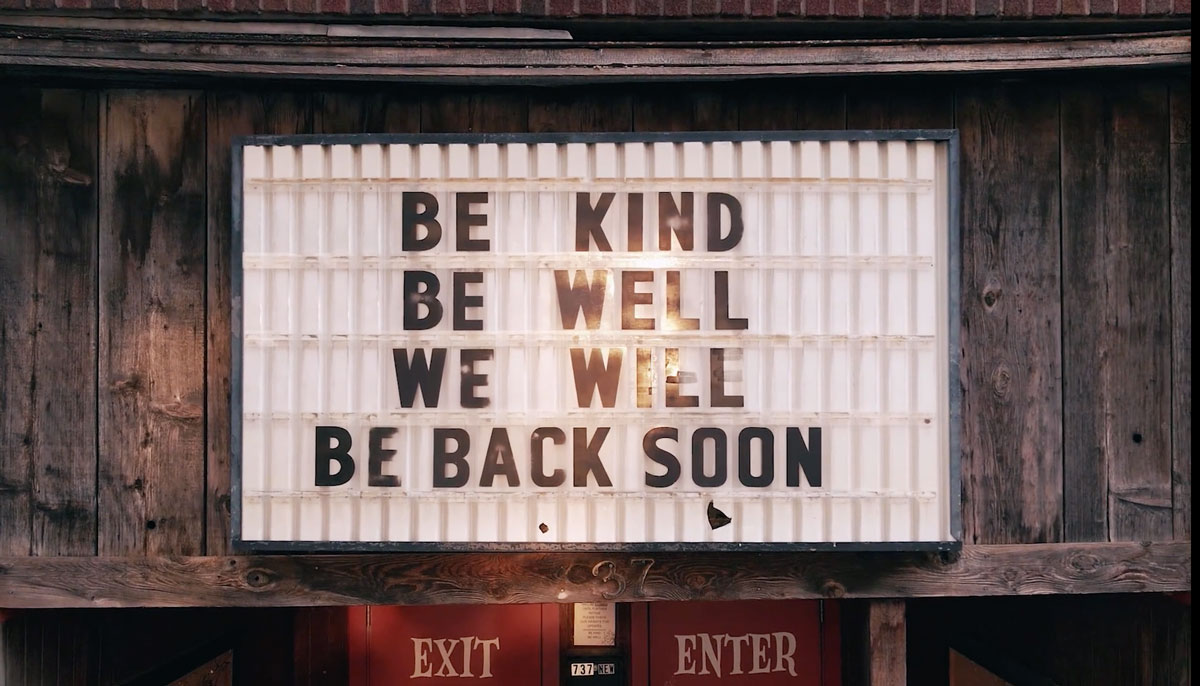
“He did such a great job of using language that was just found out in the world,” Babson says. “The way it ends with the sign of the Bottleneck, I was like, ‘Dude, that’s perfect.’ I don’t know who wrote it, but it works. It works well.”
As a filmmaker, Havener explains, the challenge, along with logistics of shooting during a shutdown, was how to make hope work: “How do you avoid cliché? How do you avoid turning glib and trite and pandering to the audience? That’s one of the hard things about positive films.”
He also wrestled with what to include, and finally decided to make the film about the places and people he witnessed and interacted with in his daily life. Inspired by films “that put you in a framework of gratitude and hope and inspiration,” Havener’s journey of documenting life in Lawrence as a form of personal therapy and expression ultimately blossomed into a stirring tribute to interconnectedness that today’s children can one day use to describe summer 2020 to their own grandchildren.
“I love films that strike an emotional chord without being sentimental,” Havener says. “I’m not saying I’m great at it, but that’s what I shoot for.”
The film closes with a simple title card—“We love you, Larry”—that enlivens dormant sparks of hope as we all endure burdens of the unknown.
“This is why we love Lawrence,” Babson says. “This is what we’re missing. This is what we have to go back to when this is all over. So stay strong and don’t forget what makes this town cool. Don’t get too used to the way things are because we’re going to go back to this way that we love, sometime soon.”
